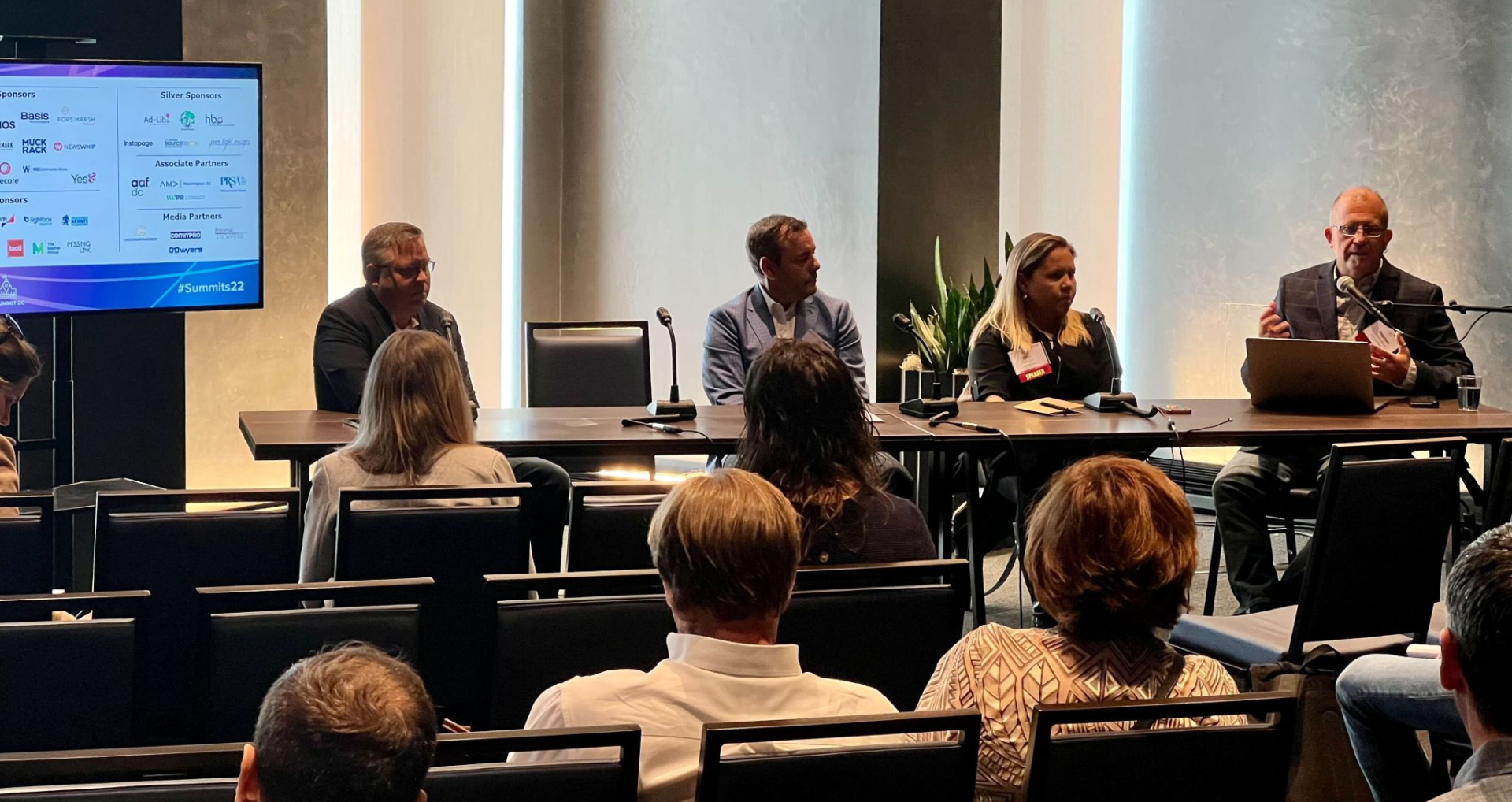We can think of many ways in which COVID has impacted our lives: Our kids have discovered something called “asynchronous learning.” The office water cooler chats have moved to Slack. We’ve figured out how to collaborate via Zoom calls – and how to make quick use of the “mute” button whenever our dogs bark.
At the same time, something very interesting has happened with business-to-business (B2B) marketing … It’s morphing into an experience that more resembles the business-to-consumer (B2C) model, with B2B buyers stuck at home and adjusting their purchasing habits. As Oracle’s Vanessa Denice has observed, “Digital transformation is changing the way brands operate, and the differences between B2B and B2C marketing are dwindling.”
I recently had the pleasure of moderating a panel on this topic, titled “How COVID Moved B2B Marketing Toward a B2C Model,” at the 2022 Mid-Atlantic Marketing Summit. During the discussion, I and my fellow participants – Beth Taylor, Vice President of Corporate Marketing at MicroStrategy; Patrick Smith, Senior Vice President and Chief Marketing Officer at Cvent; and Ronan Keane, Vice President, Global Demand Generation Marketing at GTT – talked about how the psychology behind B2C and B2B has always differed. When you buy things with “other people’s money” (meaning your organization’s budget), it brings to the table new layers of authority, accountability and responsibility.
Consumers will buy simply because they like your product. But company purchasers require solid stats and success stories to share with their team. What’s more, B2B customer experience (CX) index ratings lag behind those for B2C – less than 50 percent for the former compared to 65 to 85 percent for the latter.
In a number of ways, however, the two models are converging, with the post-pandemic virtual environment fast-tracking the changes. Here are three of the most significant components of this shift, and what marketers should know about them:
Frictionless Experiences
B2B buyers now expect the same frictionless experience that they have with retailers, from browsing products to reading reviews to making a purchase to receiving the delivery. You’ll need a platform to support these processes seamlessly, covering areas such as purchase orders, payment terms, invoices and account-specific discounts. It must unfailingly demonstrate the ability to save buyers substantial time by doing most of the heavy lifting while minimizing loose ends/unanticipated hassles.
Customer Personalization
Nearly three-quarters of B2B buyers are seeking a more personalized, B2C-like experience. Toward this end, you should evaluate your relationship compatibility with prospects and convey the unique expertise you bring to these specific relationships. Key qualities here include flexibility/adaptability, customer commitment and the ability to quickly respond to the occasional crisis. You also have to clearly prove that you’re selling something that will solve the problems of the individual purchaser – along with those who must approve of the purchaser’s decisions.
Content Marketing
You will never convince the company buyer of your platform’s frictionless experiences, customer personalization and other enhanced components without superior content that educates your target audience. Throughout the entire journey, these buyers need to get the right information at the right time. Your content should help them make better decisions while establishing true expertise/authority. The number of pre-purchase touchpoints have increased dramatically. That’s where a successful content strategy steps in, with website links that engagingly depict what you have to offer in addition to press coverage, blogs, etc. that support its value equation.
Over the Horizon
Given that many of us will likely never be returning to a physical office, and how integrated our work and home lives have become (and please insert your own “healthy-work-life-balance” quips here) this morphing will not only continue but likely will accelerate. Begin familiarizing yourselves with terms like B2E (business to everybody) and A2A (all to all) because very soon that’s going to be the norm; the phrase B2B may simply cease to exist altogether.
At W2 Communications, our digital marketing team specializes in skillfully navigating and fully leveraging today’s complex omnichannel environment – with high-impact storytelling content that goes where your target audience goes – to optimize your campaigns and achieve the highest lead conversions. To find out more about how we can help you create effective, frictionless and personalized CX, then please contact us.
Meanwhile, if you’re interested in learning more about the increasing B2C-like quality of B2B buying experiences, you can listen to our panel discussion at the summit below.




